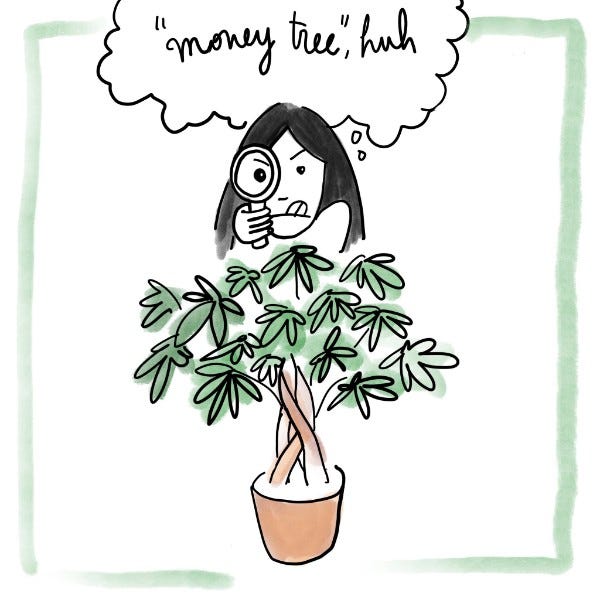 |
Illustration: Léo Hamelin
I’m terrible at marketing this newsletter.
For anyone who doesn’t know (and you might not because, see previous sentence), The Professional Freelancer is a reader-funded publication. A portion of the readers who receive it pay a monthly subscription to access more resources, events and support.
In order to successfully market this newsletter, I’m supposed to let the people who’ve signed up to read it for free know about the fact that if they pay they’ll get some great member-only benefits. But I’m not very good at that.
Now, it’s hard to talk about selling your own product and not inadvertently make it a sales pitch. But I don’t really know how else to illustrate the fact I struggle to sell without talking about my own business. I know that most creatives and freelancers also find selling one of the hardest parts of working for themselves, so that’s why I wanted to talk about I’ve been trying to work on my own issues with it.
You might have noticed in the last few months that I’ve been reminding you more often about the paid version of the newsletter. A few months ago, I realised my newsletter wasn’t in a good place and I had to take a long hard look at what was happening. For the most part, the drop in subscribers I was experiencing was down to the pandemic. But when I really looked at what was happening, that wasn’t the only factor. I realised just how little I’d been marketing the premium version of the newsletter. And then when I was really honest with myself, this happened for no other reason than my own fear of selling.
And so, I’ve tried to work out why I’m so scared to sell. For me, the problem isn’t with talking about money. If you’ve been reading this newsletter for a while, you’ll know that I’ve got no issue being upfront with money conversations. I also don’t have a moral issue with selling. I accept that we live in a market-driven economy. While philosophically I’m not convinced this is the best way to run a society, I like to eat and pay my rent. So while I muse on what an alternative utopia could look like, I nonetheless willingly participate in the current system.
So what’s my problem, then? Serendipitously, I listened to the online entrepreneur Sara Tasker’s podcast episode about selling right in the middle of this voyage of discovery. “It’s easier to think the answer is in the new thing,” she said, explaining how we often want to create something new as a distraction from the discomfort of the idea we’ve already put out into the world.
Then she said how running your own business is like therapy because it brings up messy parts of yourself and it clicked. I’m scared to sell because I don’t believe in myself and so can’t possibly believe in anything I’ve created.
I’ve faffed a lot with what I’m offering. I used to think, I’m not giving enough, my product isn’t good enough. What I realise now is that there’s nothing lacking in the product, merely my confidence.
Naming it helps – I don’t have a product problem, I have a marketing problem. I tell myself: This thing you’ve built is good and it helps people. I repeat it like a mantra. When my confidence is really waning, I read back over the emails and messages I’ve received from subscribers who say kind things and tell me this thing helps them.
People suffering from low-esteem are taught to talk to themselves with kindness and compassion. Positive self-talk, it’s called. I’ve been doing something similar with my freelancing, proactively telling myself that this thing is enough. It’s a daily struggle to tell myself, not only is the product is good enough, but so am I.
The Reading List
I’m a Substack mentor! You can read more about it here, and snag a free membership while you’re at it.
This NYT article is aimed at students, but the strategies for defeating distraction and staying focused are relevant to anyone working from home right now.
And if this chaotic year still feels overwhelming, treating yourself with compassion is a positive first move. Here are some actionable steps for taking care of your mental health while working.
Since the arts sector has been left out in the cold by Boris, the Creative Industries Federation has launched a membership for freelancers to access resources, education, and support. You can read more about it here.







